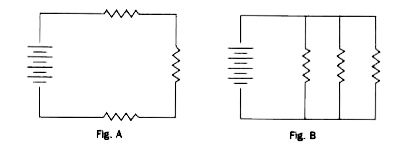Write two differences between polypeptides and proteins.
Step-by-Step Text Solution
1. Definition and Structure:
- Polypeptides: Polypeptides are linear chains of amino acids linked together by peptide bonds. They represent a simple structure and are considered the primary structure of proteins.
- Proteins: Proteins are complex molecules that consist of one or more polypeptide chains that are folded into a specific three-dimensional shape. This folding is crucial for their function.
2. Bonding and Stability:
- Polypeptides: The amino acids in polypeptides are connected by covalent peptide bonds, which are strong and provide stability to the chain.
- Proteins: In proteins, the folded structure is maintained by various non-covalent interactions, such as hydrogen bonds, ionic bonds, and Van der Waals forces. These interactions are weaker than covalent bonds but are essential for the stability of the protein's three-dimensional structure.
3. Functional Properties:
- Polypeptides: Polypeptides generally lack functional properties due to their simple primary structure. They do not perform biological functions on their own.
- Proteins: Proteins, due to their complex structures (which can include secondary, tertiary, and quaternary structures), have specific functional properties and are active molecules that perform various biological roles in the body.
Summary of Differences
1. Structure: Polypeptides are simple chains of amino acids, while proteins are complex molecules made of one or more folded polypeptides.
2. Functionality: Polypeptides lack functional properties, whereas proteins have specific functions due to their complex structure.
- Polypeptides: Polypeptides are linear chains of amino acids linked together by peptide bonds. They represent a simple structure and are considered the primary structure of proteins.
- Proteins: Proteins are complex molecules that consist of one or more polypeptide chains that are folded into a specific three-dimensional shape. This folding is crucial for their function.
- Polypeptides: The amino acids in polypeptides are connected by covalent peptide bonds, which are strong and provide stability to the chain.
- Proteins: In proteins, the folded structure is maintained by various non-covalent interactions, such as hydrogen bonds, ionic bonds, and Van der Waals forces. These interactions are weaker than covalent bonds but are essential for the stability of the protein's three-dimensional structure.
- Polypeptides: Polypeptides generally lack functional properties due to their simple primary structure. They do not perform biological functions on their own.
- Proteins: Proteins, due to their complex structures (which can include secondary, tertiary, and quaternary structures), have specific functional properties and are active molecules that perform various biological roles in the body.
1. Structure: Polypeptides are simple chains of amino acids, while proteins are complex molecules made of one or more folded polypeptides.
2. Functionality: Polypeptides lack functional properties, whereas proteins have specific functions due to their complex structure.
Topper's Solved these Questions
- BIOMOLECULESBook:ICSEChapter:BIOMOLECULESExercise:EXERCISE (PART-II)(DESCRIPTIVE QUESTIONS)(LONG ANSWER QUESTIONS)
Explore 31 Videos
- BIOMOLECULESBook:ICSEChapter:BIOMOLECULESExercise:ISC EXAMINATION QUSTIONS (PART-I)(DESCRIPTIVE QUESTIONS)
Explore 21 Videos
- BIOMOLECULESBook:ICSEChapter:BIOMOLECULESExercise:EXERCISE (PART-II)(DESCRIPTIVE QUESTIONS)(VERY SHORT ANSWER QUESTIONS)
Explore 85 Videos
- APPENDIX II ( TYPICAL CONVERSIONS)Book:ICSEChapter:APPENDIX II ( TYPICAL CONVERSIONS)Exercise:AROMATIC CONVERSIONS
Explore 98 Videos
- CHEMICAL KINETICSBook:ICSEChapter:CHEMICAL KINETICSExercise:ISC EXAMINATION QUESTIONS (NUMERICAL PROBLEMS )
Explore 57 Videos
Similar Questions
Polypeptide and protein
View Solution(a) Describe the events of Oogenesis with the help of schematic representation. (b) Write two differences between Oogenesis and Spermatogenesis.
View SolutionWrite two differences between: Antibodies and interferons
View SolutionWrite two differences between spermtogenesis and oogenesis
View Solution(a) Describe the events of spermatogenesis with the help of a schematic representation.
(b) Write two differences between spermatogenesis and oogenesis.
View SolutionWrite two differences between pitch and loudness.
View SolutionWrite two differences between: B cells and T cells
View SolutionDefine immunity. Describe different ways to develop immunity. Write two differences between active and passive immunity.
View SolutionDefine biomolecules. Write two basic differences between biomolecules and molecules of non-living systems.
View SolutionThere are two circuits given below:

Write two differences between the two circuits.
View Solution